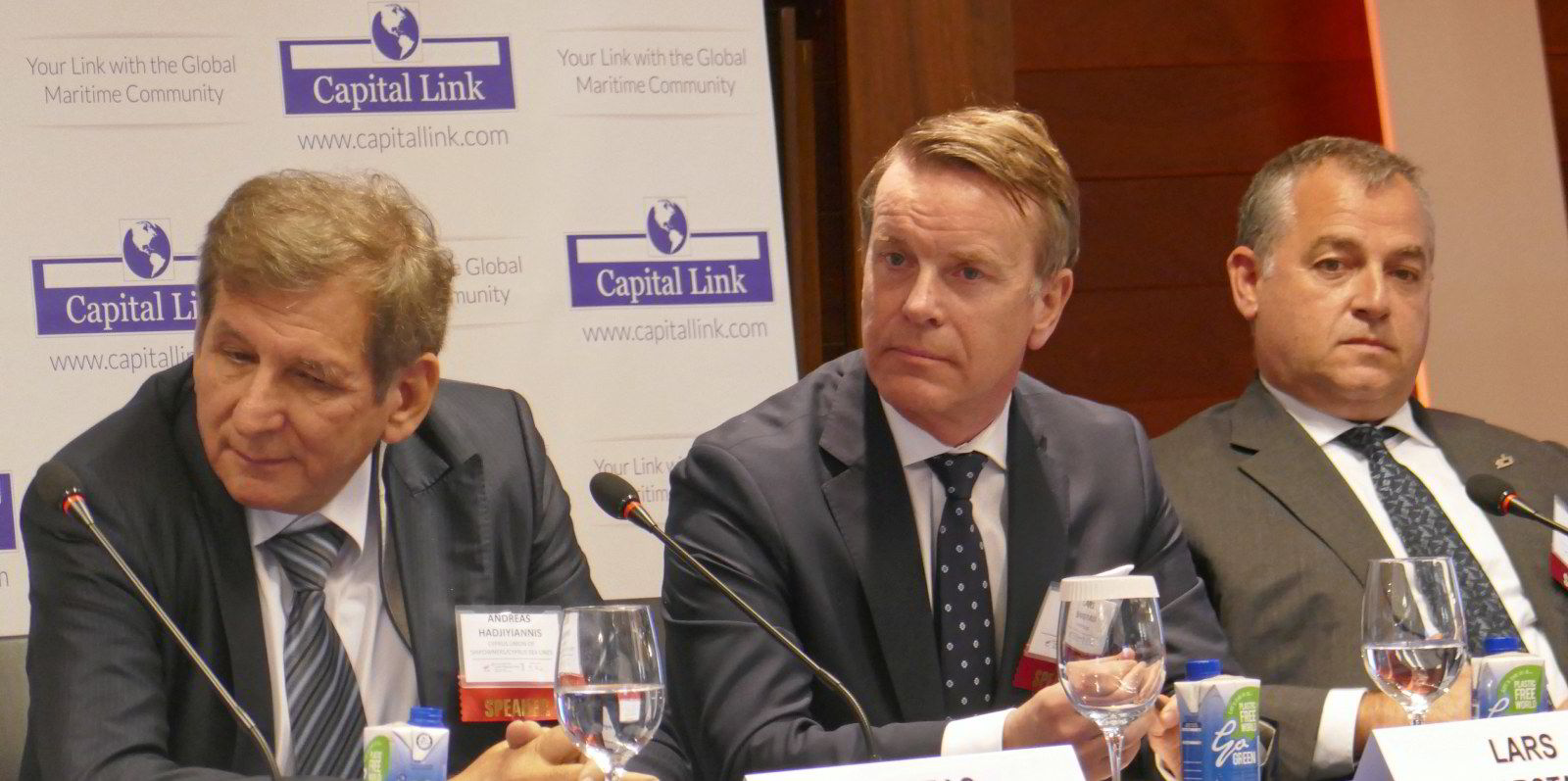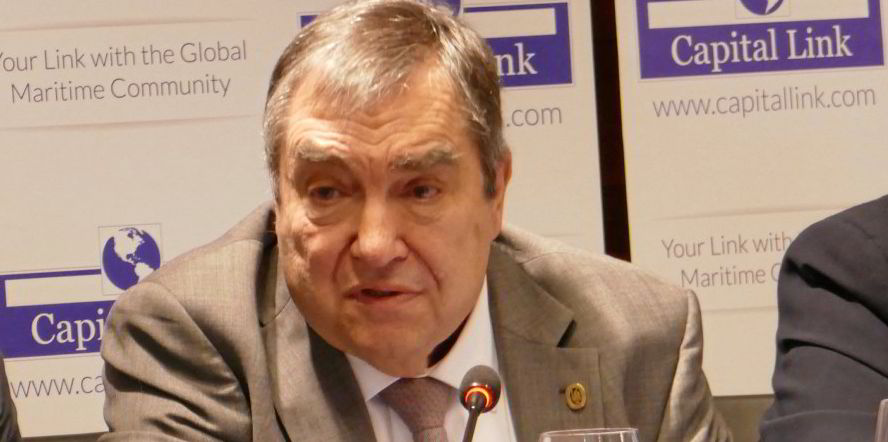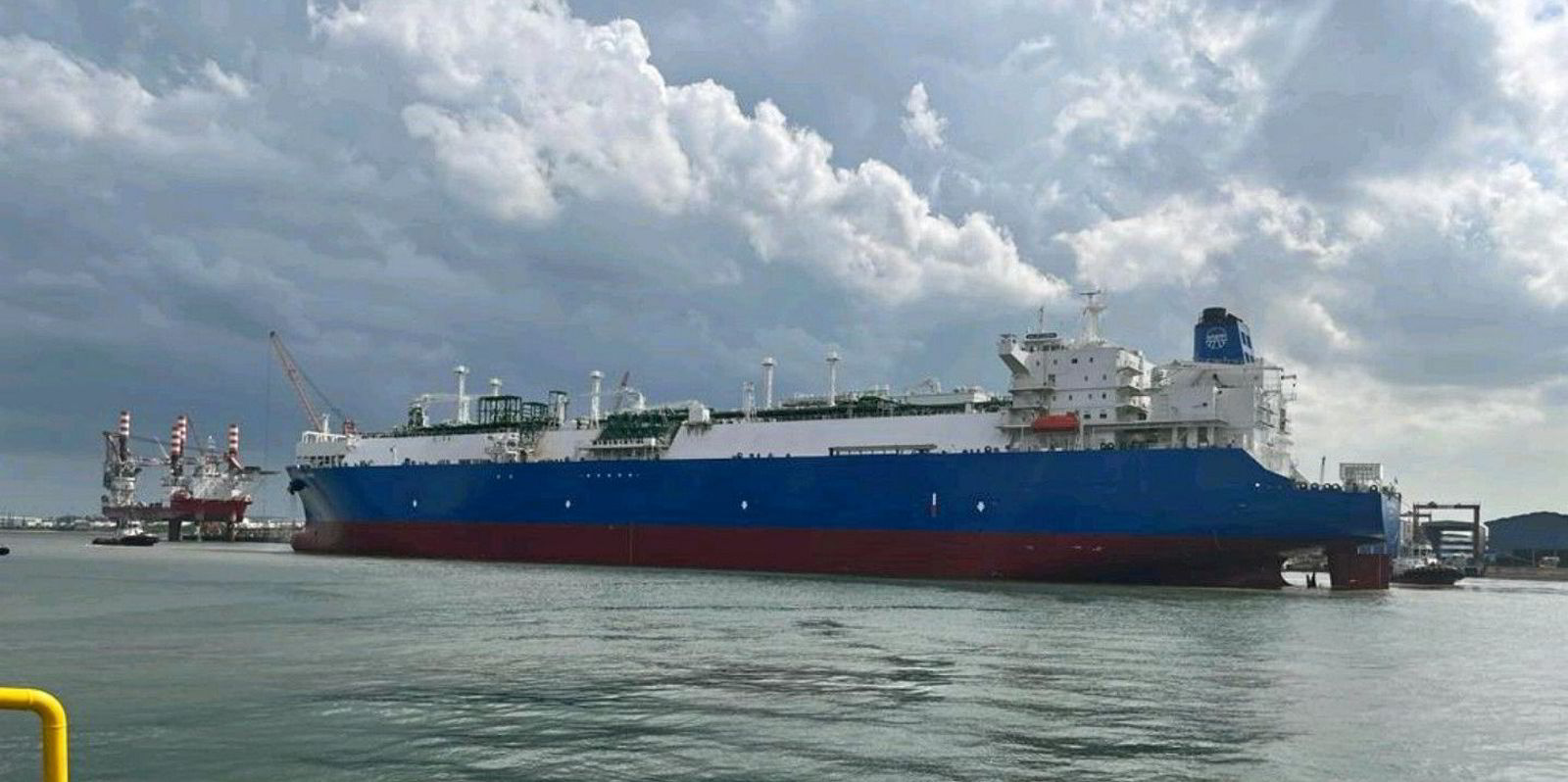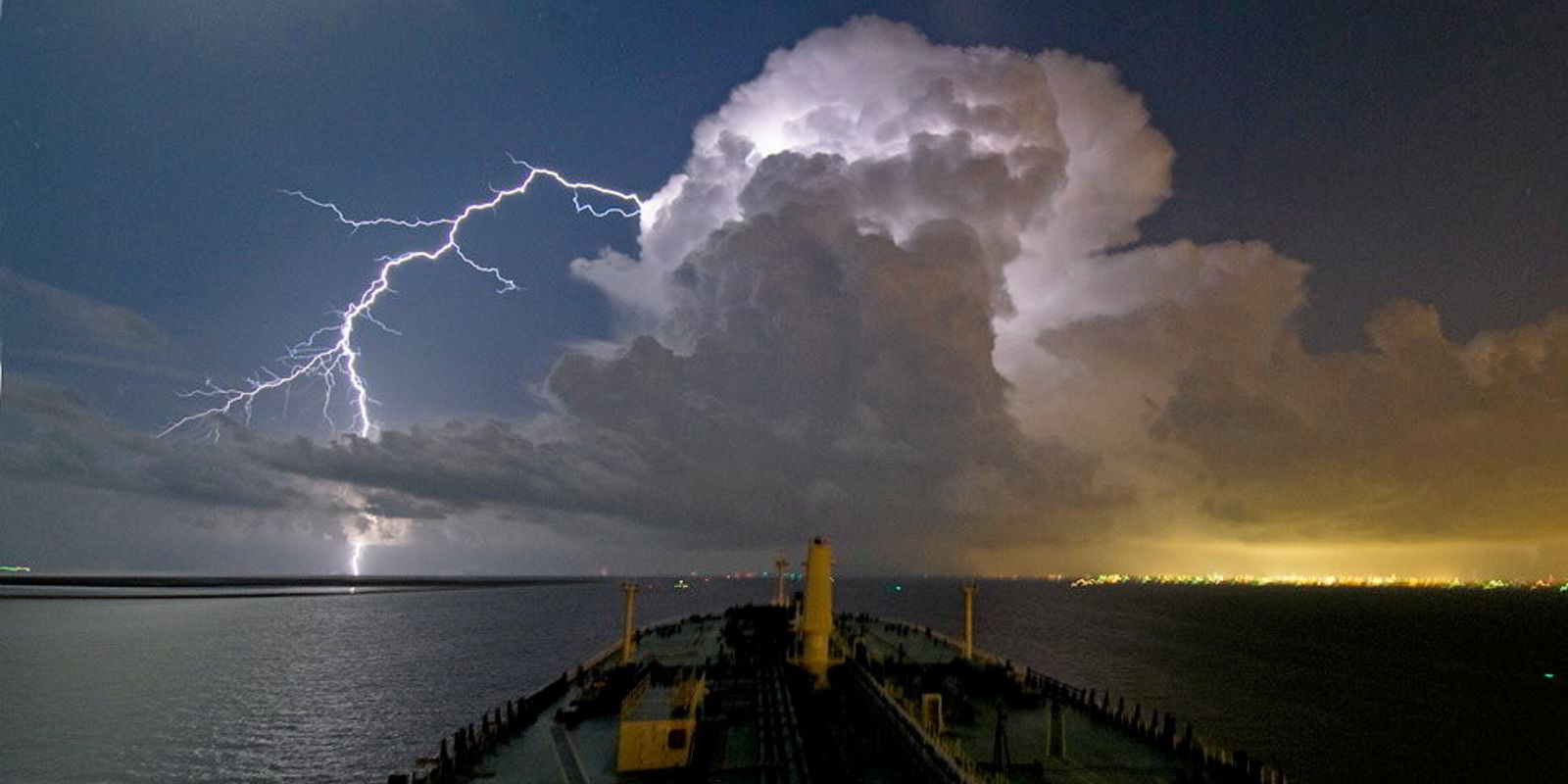Cyprus’ two highest-profile shipowners expressed concern over the impact of great-power wars and friction on shipping.
And they voiced hopes for a quick ceasefire in Ukraine.
“The world seems to be divided in two,” Andreas Hadjiyannis, the president of the Cyprus Union of Shipowners (CUS), told the Capital Link Cyprus Shipping Forum in Limassol on Tuesday.
“We’re already talking about de-globalisation ... That’s frightening in shipping.”
Hadjiyannis is also chief executive of Hellenic Tankers and dry cargo outfit Cyprus Sea Lines (CSL).
Polys Hajioannou, chief executive of US-listed Safe Bulkers, was even more blunt.
“We have the West and the East fighting each other for no reason,” he told the same conference.
“The war in Ukraine is totally unnecessary. They’re fighting over land that’s already destroyed ... they should sit down and stop this somehow.”
Speaking at a top-level panel that also included Transmed chief executive Nicole Mylona, Goodbulk chief executive John Michael Radziwill and Frontline chief executive Lars Barstad, the Cypriot duo also expressed deep scepticism about the wisdom of Western sanctions against Russia.
Asked about how effective he thought these sanctions were, Hadjiyiannis said: “They are effective. They’re helping China a lot, against Europe.”
He argued that Asian importers of cheap Russian crude refine it and re-export to Europe at a multiple price.
Hajioannou made the point that the sanctions hurt Russia indeed, but they are damaging Europe and the international economy as well.
“Sanctions are not the solution,” he said. “If things carry on forever like that, we’ll have interest rates of 5% and 6% not for one year, as everybody thinks and wishes, but for the next 15 years.”
Hajioannou admitted that sanctions may help tanker owners’ earnings for a while, but he added that carrying cargo over more miles amid changing trade patterns also increases carbon emissions.
Weaning themselves off
Cyprus has been affected by the war in Ukraine in more than one way.
After the collapse of the Soviet Union, the Mediterranean nation became a popular offshore centre for Russian business.
Despite this legacy, the government in Nicosia has backed European Union sanctions against Russia, to drive home the point in the EU that Cyprus was the victim from an invasion by Turkey in 1974, which is generally considered to have been against international law.
“In Cyprus, we know what it is to be a refugee,” Hajioannou said.
However, backing EU sanctions against Moscow has come at a cost.
Speaking separately during the Capital Link conference, Cyprus central bank governor Constantinos Herodotou said Russian interests account for less than 2% of all deposits in the country’s banking system and less than 1% of all loans.
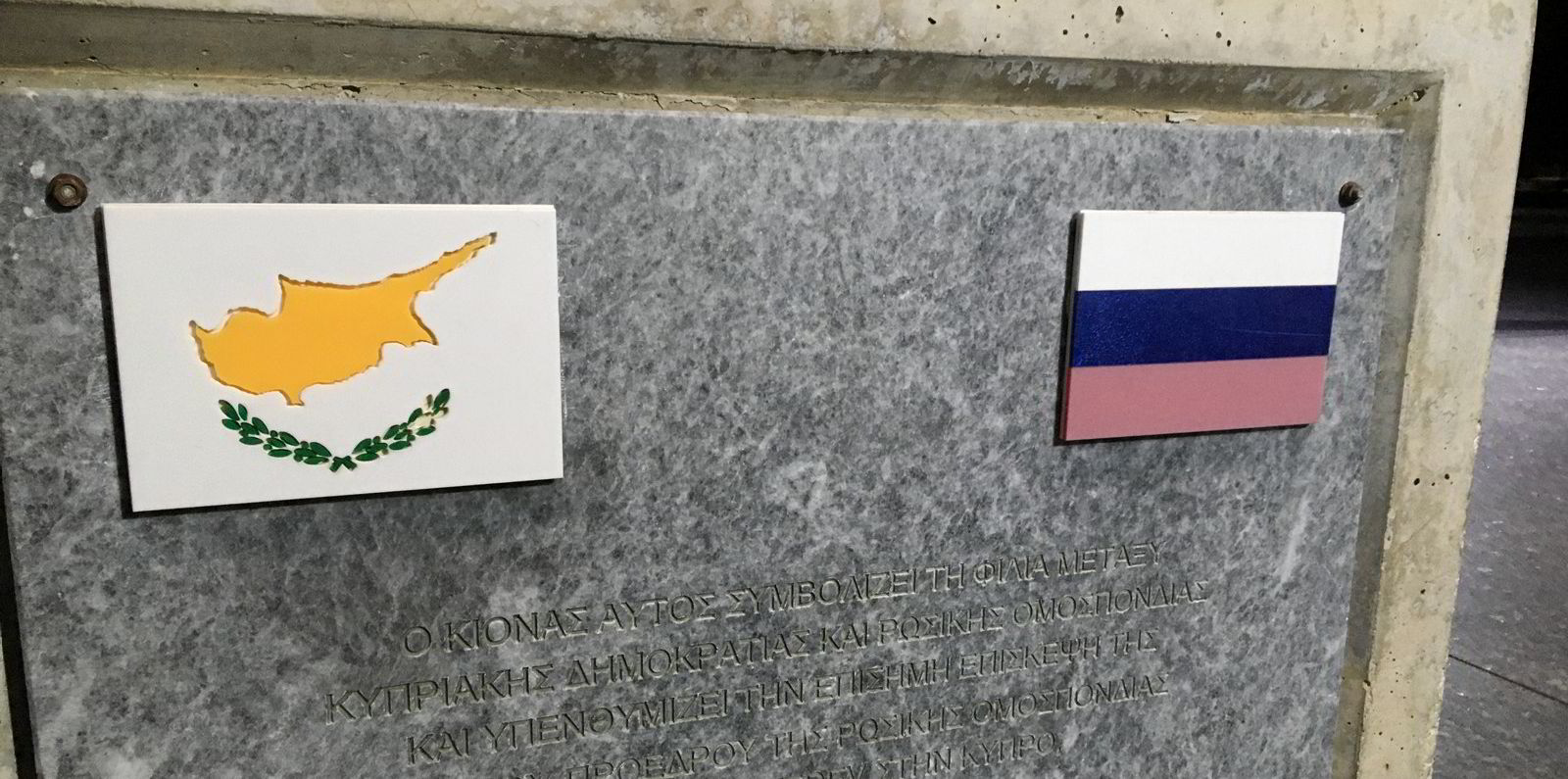
About 15% to 20% of the tankers flying the Cyprus flag decamped from its registry since Russia’s invasion of Ukraine.
Companies such as Sovcomflot, which were domiciled in Cyprus for decades, have left as well.
The country has been trying to attract other shipping firms to replace them.
As TradeWinds already reported, cruise ship giant Royal Caribbean Group announced on 23 January that it was planning to open an office in the city.
The country caught another big fish in John Fredriksen-controlled Frontline, which recently switched its corporate domicile from Bermuda to Cyprus.
Speaking to TradeWinds on the sidelines of the Capital Link event, Frontline chief executive Barstad said the switch of registration was not linked to the company’s failed plan to merge with tanker rival Euronav.
“It was something we had been contemplating for a long time,” he said.
Asked by the panel to comment on the switch from Bermuda into Cyprus and the EU, Barstad said: “If your domicile is regarded a tax heaven by quite a few of the countries you trade with ... it becomes ... complicated.”
Barstad also revealed that Frontline had been considering Malta as its future seat well.
However, Cyprus carried the day for a variety of reasons — not the least of which was that major shareholder Fredriksen has had a business presence on the island for decades and even has Cypriot citizenship.
A predictable EU framework for shipping and sourcing of technical, operational and accounting expertise did the rest.
Barstad said Frontline is about to move into a physical office in Cyprus and plans “to grow organically” there, without elaborating on the company’s future staffing plans.
